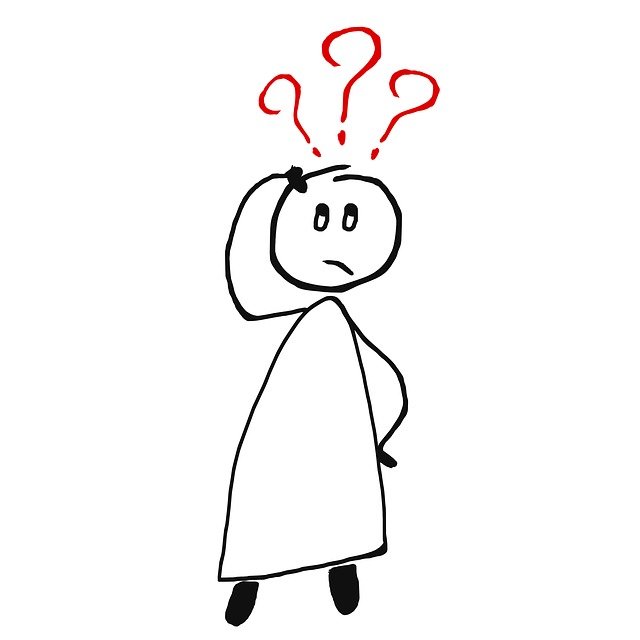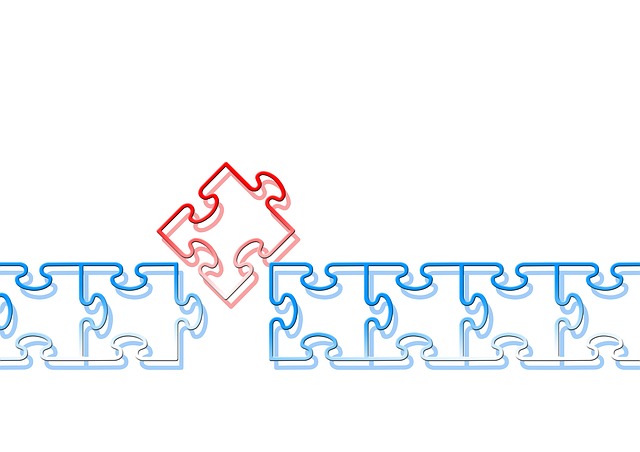“Of the crimes” is how is entitled the first Chapter, of the first Title (“Of the criminal infringement”), of the first Book I of the Spanish Criminal Code (CP). We have left behind the Preliminar Title where are developed the basic principles of the criminal law and which as such apply also to the crimes that are punished by the special laws (art. 9 CP). However, the Book I does not have doubts in starting with the same principles given their importance, in the article 10 we can find reflected the principle of legality, the principle of non-retroactivity of the unfavorable criminal norms and the principle of liability, which afterwards are developed in the two following articles.

Therefore, we will begin recalling these principles, for later seeing what is new in the Chapter I, how are classified the crimes in the CP, the so-called error of prohibition, the difference between accomplished crime and the attempt of crime, the conspiracy and proposition, and the provocation, apologia and induction.
– The principle of legality, the principle of non-retroactivity of the unfavorable criminal norms, and the principle of liability:
According to the principle of legality, a behavior cannot be chastened by the state if previously does not exist a norm with the rank of law which describes it and establishes a concrete punishment. The goal is to avoid that the subjects which unavoidable are subjected to the coercive power of the state, fall victims of its arbitrary actuation. It is a right recognized with general character in the art. 9.3 of the Spanish Constitution (CE) and in its art. 25.1 regarding the criminal norms, where this right achieves the rank of a fundamental right.
On the other hand, the principle of non-retroactivity of the unfavorable criminal norms derives from the principle of legality, those who are subjected to the repressive power of the state have to know the consequences of their behavior, thereby the punishment which is imposed on them in the case of contravening what is established in a norm, must be the envisaged in such norm at the moment of committing the facts. But we must be even more concrete, because the principle of non-retroactivity of an unfavorable criminal norm only has effect precisely against such unfavorable criminal norms, hence, either if afterwards a behavior begins to be punished by a less severe criminal norm than before, or if it directly passes to be decriminalized, the convicted who was punished by more severe norms has the right to benefit himself of this reform. This principle like the principle of legality is reflected in the CE with general character in its art. 9.3 and regarding the criminal norms in its article 25.1 CE.
The principle of liability in short says that, in order to punish a subject for determined behavior, it is necessary that during its execution there has to have been either malice or negligence, which entails likewise the obligation of determining the responsibility of the punishable action or omission. A behavior has to be punished according to the liability of the accused in the commission of the facts, and not its personality.

For more information on the above principles, I recommend to you to visit my publication in which I comment the Preliminary Title of the CP.
We can find this principles, as we have commented at the beginning, in the art. 10 CP which says: “Crimes are the malicious and imprudent actions punished by the law.” After the article 10 CP, in the article 11 CP is developed the concept of negligence, a sort of crime bordering with the eventual malice, a kind of malice also punishable as such. If the malice is the conscious and willful commission of an actions which is known is typified as a crime, the eventual malice is defined as consciously carrying on an action which is known is generating a risk upon determined legal good legally protected, and despite that it is executed. But the negligence has been conceived by our tribunals as something more complex, and more if we take into account that it has been classified in serious negligence and less serious negligence. A negligence consists in, the infringement through either a no malicious action or omission of a duty of care imposed be a social or legal norm, with which is produced a damaging result that was not foreseen.
The serious negligence and the less serious negligence are differentiated according to the importance of the duty omitted, the value of the legal goods affected and the possibilities that the result occurs.
Like before, in the case that you need a deeper explanation of the malice and the negligence, I recommend to you to visit my publication where I comment the articles of the Preliminary Title of the CP.
Lastly, in the art. 12 is repeated what has been said regarding the article 10 but only in relation with the negligence: “The imprudent actions or omissions only are punished when it is expressly established in the law.” Thereby, we can apply here again what we have already seen about the principle of legality, the principle of non-retroactivity of the unfavorable criminal norms, and the principle of liability.
– The classification of the crimes in the CP:
After the reform of the CP by means of the Organic Law 1/2015 (LO 1/2015) the misdemeanors disappear and with them the CP´s Book III where they were typified. Currently the crimes are classified in serious crimes, less serious crimes and minor crimes, attending to the type of punishments which each of these kind of crimes have associated. Thereby, for example, the art. 13.1 CP says: “Serious crimes are the infringements which the Law punishes with a serious punishment”, or the art. 13.3 CP says: “Less serious crimes are the infringements which the Law punishes with a less serious punishment.” Being enumerated according to this classification the punishments in the art. 33 CP.

According to the ranges of the punishments that appear established in the different classifications which makes of them the art. 33 CP, the art. 13.4 states: “When the punishment, for its extension, may be included at the same time between the mentioned in the first two numbers of this article, the crime will be regarded, as serious. When the punishment, for its extension, may be regarded as minor and less serious, the crime will be regarded, as minor.” In other words, if the punishment imposed for the CP to a determined crime comprehends its classification as serious crime in its upper section and as a less serious crime in its inferior section, it must be classified as serious crime. On the contrary, if the range of the punishment imposed to a crime comprehends its classification as less serious crime in its upper section and as minor crime in its inferior section, it must be classified as a minor crime.
This last point is relevant at the hour of determining the procedure according to which must be tried determined facts, for in the Spanish Criminal Procedure Act (LECrim) exists a specific procedure for the trying of the minor crimes. We can find an example in the slanders done without publicity of the art. 209 and which are punished with a fine between three to seven months, they are tried according to the rules of the procedure for the trying of minor crimes, whose hearing and ruling belong to the Examining Magistrate (art. 14.1 LECrim).
Therefore, when the punishment imposed to a crime has a part of its range included within what can be regarded as a minor crime, although the rest surpasses this boundary and can be regarded as a less serious crime, the crime must be regarded as a minor crime. At this point it is convenient to make a stop, in order to pay attention to a key document to interpret the procedure for the trial of minor crimes, the Circular 1/2015, about the guidelines for the exercise of the criminal action regarding the minor crimes after the reform carried out by the LO 1/2015 (Circular 1/2015). According to the Circular 1/2015, in the crimes which have associated a compounded punishment: “only can be regarded minor a crime when al the punishments which has assigned include or are within the minor punishments defined in the art. 33.4 CP; on the contrary, if some of them have an extension within the punishments of the art. 33.3 CP, the art. 13.2 must prevail and the crime must be regarded as a minor crime”. This demands that, when a crime has assigned more than one punishment, all of them must respect the threshold established by the art. 13.4, otherwise, the crime cannot be catalogued as a less serious crime and would not be possible to try it according to the special procedure envisaged for them.
The criteria followed by the Circular 1/2015 is the same followed by the CP in its art. 131.2 CP when the prescription of the crimes is regulated: “when the punishment assigned by the law is compounded, in order to apply the rules applied in this article, the punishment which demands more time for its prescription will prevail”.
For more information about the procedure for the trial of minor crimes, I recommend to you to visit my publication in which this is properly analyzed.
– The error of prohibition:
The article 5 of the CP says: “There is no punishment without malice or negligence”. We have already seen what we must understand by malice, in its two modalities direct and eventual, and for negligence. But, what happens if there is no malice and the action cannot be classified as an imprudent action or omission (art. 11 CP)? In these cases it cannot be punished.
The error of prohibition recognized in the art. 14 CP consists in, the total absence of malice by the person who commits an act typified as a crime. There is no malice, because who executes the act does not know that this behavior is typified as a crime, this situation is not comparable to the doubt, he has to act believing that he is acting within the limits marked by the law. In this sense the Spanish Supreme Court’s sentence 2694/2022 says, in which is cited the Spanish Supreme Court’s sentence 219/2022 of 9 March: “The error of prohibition cannot be confound with the situation of doubt, for this is not compatible with the essence of the error which is the erroneous believe, thereby there is no situation of error of prohibition when there exists the doubt on the licitness of the fact and is decided to act against the law, existing in these cases liability in the same way that the eventual malice supposes the malicious action regarding the subjective categorization”. An this sentence afterwards says referring to the error of prohibition: “it supposes the certain existence of a (erroneous) knowledge”.

Nevertheless, the error of prohibition may be classified in two kinds, depending upon whether the error is unavoidable or avoidable, and the consequences associated to each of these two kinds are different. When the error is regarded unavoidable the criminal liability will be excluded, and when it is avoidable, the less liability of the author will determine the imposition of an inferior punishment, in one or two degrees (art. 14.3 CP).
On the one hand, the error will be unavoidable when, who commits it does not have any possibility of knowing the illegality of his acts, for it we should attend to objective and subjective criteria, which will form the so-called by the Spanish jurisprudence trial of avoidance. Let us follow what is said by the Spanish Supreme Court’s sentence 2694/2022 again: “Firstly, it is clear that is not demandable the same degree of care in the author to recover from the error suffered (nor in order to be able to appreciate it) when we are within the frame of the known as “natural crimes” than when the error is produced regarding others more complexes and sophisticated. The sentence, which has already been mentioned here stressed: “it is not permissible the invocation of an error in those infringements whose illegality is obvious, the Spanish Supreme Court’s sentence 11.3.96 affirms that it is not possible alleging it when are utilized ways not authorized by the Legal Order which all the people know are forbidden for its illegality is obvious.”
On the other hand, the erro will be avoidable when, who commits a crime would be able to either have reasons to think that his behavior was illicit or have gained access to means which would inform him of the illegality of the act, like calling to a lawyer or reading jurisprudence. In this sense the various times mentioned Spanish Supreme Court’s sentence 2694/2022 says: “In this way the punishability of the avoidable error takes place because the author could be able to have the conciseness of the illegality which in reality he did not have executing the fact, in other words because he could act in a different way…The avoidance of the error, according the general opinion, presupposes that the author had had, in the first place, “reasons” to think in the illegality, in other words to asking to himself on the infringement of the norm, taking into account circumstances of the fact which provide to the author evidences of the possible illegality; and in second place, the “possibility” of obtaining a correct information on the right, which would allow him to grasp the illegality of his behavior. Regarding this, the means pointed out in the doctrine as proper for clearing the doubt are the reflection and the information in a reliable legal means, as the advice of a lawyer or the jurisprudence”.
– The accomplished crime and the attempt of crime:
The CP punishes both the accomplished crime and the attempt of crime (art. 15 CP), although the attempt “will be imposed the punishment inferior in one or two degrees to that established by the Law to the accomplished crime, in the extension understood as adequate, taking into account the inherent risk to the attempt and the degree of execution achieved” (art. 62 CP). Except when the attempt is specially punished by the CP (art. 64 CP), in which case the punishment imposed must be the established in such precept, as happens in the case of trying to kill the king (art. 485.3 CP).

The attempt is defined in the own article 16.1 CP: “There is attempt when the subject has started the execution of the crime by external facts, practicing all or some of the acts which objectively must produce the result, and however, this is not produce for independent causes to the will of the author”. Here it is clearly seen that the motive of the punishability, if the damaging result is at the end not produce is not for the will of whom wants to commit a crime. If as consequence of the acts practiced we can assure the existence of malice (art. 5 and art. 10 CP), the attempt must be punished independently that the damaging result has not been produced.
On the other hand, the place where has been accomplished the crime or has been carried out the acts of attempt to commit it, is relevant at the hour of determining the competence of the Judge or Court which first will investigate and after will hear and rule the cause. The LECrim, in its article 14 establishes that in criminal matters the preferential jurisdiction is the place where the crime was committed («forum delicti comissi”) and envisaged subsidiary rules which can only apply when there is no idea of where was committed the crime, the established in the art. 15 LECrim. Likewise, when the the art. 14 and 15 of the LECrim establish the rules for determining the territorial competence, they do it in an imperative way.
For understanding the art. 14, we should mention the principle of ubiquity stated in the no jurisdictional agreement of the Second Chamber of the Spanish Supreme Court of 3 February 2005: “The crime is committed in all the jurisdictions in which have taken place any of the elements of the type. In consequence, the judge of any of them which first has initiated the procedure actuations, will be who has competence to the investigation of the cause”. In other words, the crime is considered committed in all the places in where the action has been developed, as well as where the result has taken place.
– The conspiracy and proposition:
The artículo 17 of the CP punishes two kind of behavior, the conspiracy which is defined in its first point: “when two or more persons agreed the execution of a crime and decided to commit it”. And the proposition, which is defined in its second point: “when who has decided to commit a crime invites others to participate in it”. Both cases only punishable when the CP expressly envisaged it, as happens in the cases of homicide and murder (art. 141 CP).

The Spanish Supreme Court’s sentence 308/2014, has enumerated the characteristics of the proposition established in the art. 17 CP: “ The jurisprudential doctrine has manifested itself regarding this kind of crime, for example, in the sentences of this Court 29 November 2002, 25 July 2003 and 22 September 2006, which refer to the requisites of the proposition.
In first place, there must exist an express legal precept in the case of the crime object of the proposition…These are cases where the legislator bring forward the barrier of protection of determined legal goods, like in the case of the physical integrity, for its special relevance, specifically punishing determined preparatory behavior otherwise unpunished.
In the second place, the behavior has to consist into a proposal or invitation to a third party to commit such crime, always that that third party has not decided before, by his own, the execution of the crime.
In third place, the proposal has to refer to the execution of something possible, besides it has to be serious and effective enough to acquire criminal relevance.
In fourth place, it is indifferent in the proposer participates or not. The sentence of this Chamber of 29 November 2002 already expressed that the proposer can ask to third parties the execution of the crime with him or in his substitution.
In fifth place, it is indifferent whether the proposal is accepted by whom receives it. Unlike the conspiracy, in the proposition there is not demanded the acceptation of whom receives it, always that the proposal is serious and concrete, and who has receive the proposal is right person to the execution of the crime proposed. In reality, the proposition is an frustrated induction.
In the sixth place, it is determinant that the execution of the crime has not been initiated, for in such cases it will be punished as an attempt of crime or an accomplished crime, and the proposer as instigator or coauthor, but the acts of proposition will not be punished separately being absorbed in the execution.”
– The provocation, apologia and induction:
In the article 18 there are typified three kinds of behavior: the provocation, the apologia and the induction. The provocation and the apologia share the base, the incitement through the media or in front of a crowd to commit a crime. The difference is that in the apologia the provocation is tainted by an ideology.

According to the Spanish National High Court´s resolution 302/2022: “the apologia of the art. 18, according to the wording of the own article, demands a direct invitation to commit a concrete crime, and only then it is punishable. The same can be said of the art. 579 CP, which refers to the provocation, conspiracy and proposition to commit specific terrorist actions”. The same happens with the induction, something which distinguishes both figures from the provocation of the art. 18, which should not be referring to a concrete victim or to commit a concrete crime.
The apologia of the art. 18, should be distinguished also, from the apologia typified in the art. 578 CP, according to the Spanish National High Court´s resolution 302/2022 the latter is: “characterized by its generic nature, without integrating a direct or indirect provocation to commit a concrete crime”. In accordance with the Spanish National High Court´s resolution 3998/2022 regarding the apologia of the article 578 CP: “the jurisprudence considers that the dividing line from which a discourse or action is punishable, is in the demand that the behavior suppose an incitement, at least an indirect incitement, to the violence against the citizens in general or against determined social groups in particular, generating a risk for the persons or the rights of third parties or for the own system of liberties”.
The article 18.2 says that: “The provocation will be exclusively punished in the cases determined by the law.
If the provocation has been followed by the perpetration of a crime, it will be punished as induction.” Thereby, the provocation, like the conspiracy and proposition, should be expressly punished in an article as a crime, as happens with the crime of human trafficking (art. 177 bis 8 CP).
The Spanish Supreme Court’s sentence 1337/2022 recall to us the requisites of the induction: “a) The influence of the inductor should be exercised upon whom is not previously decided to commit the action; b) The incitation has to be intense and adequate, in a way in which motives the commission of the desired fact; c) The executor and the crime has to be determined; d) The inductor has to act with the double intention of provoking the decision to commit the crime and that the crime is executed.”
Víctor López Camacho.
Twitter: @victorsuperlope.
More on my website: www.victorlopezcamacho.com
